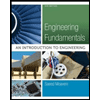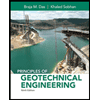7:35 Done ⚫ mastering.pearson.com AA <34 Rotated Axes Moments of Inertia Mohr's Circle for Moments of Inertia < 3 of 3 > ? Help axis is twice the angle between the x axis and the beam's major principal axis. Part A An engineer is designing a structural beam that contains a lengthwise conduit that will be used for routing cable. As shown, the cross section of the beam has the dimensions a = 0.680 ft, b = 1.25 ft, c = 0.250 ft, and d = 0.440 ft. The a • 4 b R y' C x' X < beam's centroid is located at point C (4.65x10-2 ft, 2.53×10-2 ft). The engineer wishes to 4 3 of 3 Review The angle in Mohr's circle between OA and the I axis is twice the angle between the x axis and the beam's major principal axis. Learning Goal: To be able to use Mohr's circle to find the principal moments of inertia for an area. Not every beam considered by engineers for a given project will be symmetric about its x or y axis. For these types of beams, their largest and smallest moments of inertia will not be about the x and y axes, but about axes that have been rotated in some direction about the beams' centroids. Because beams tend to buckle about the axis with the smallest moment of inertia, it is important to determine the Part A An engineer is designing a structural beam that contains a lengthwise conduit that will be used for routing cable. As shown, the cross section of the beam has the dimensions a = 0.680 ft, b = 1.25 ft, c = 0.250 ft, and d = 0.440 ft. (Figure 1)The beam's centroid is located at point C (4.65×10-2 ft, 2.53×10-2 ft). The engineer wishes to determine the beam's principal moments of inertia and the orientation of the principal axes using Mohr's circle. First, find the beam's moment of inertia and product of inertia. What are the beam's moments of inertia, I and Iy, about the centroidal x' and y' axes, respectively? What is the beam's product of inertia about its centroid? Express your answers numerically in feet to the fourth power to three significant figures separated by commas. ▸ View Available Hint(s) Figure a 8+ → y d→ b Temps to plum... Tomorrow tab 12 I esc 4x < 1 of 1 > C x' FI F2 1 2 Ix, Iy, Ixy = Submit ΜΕ ΑΣΦ ↓↑ vec Part B Complete previous part(s) Part C Complete previous part(s) Part D Complete previous part(s) Q Search #3 DII F4 Q W E 4 S D R % 85 LL F6 T 6 G 7 (@ ? ft4 W 8:35 PM Λ 12/8/2024 prt sc home end insert delete FB F9 F10 FIT F12 H U 8 9 0 P J K L backspace
7:35 Done ⚫ mastering.pearson.com AA <34 Rotated Axes Moments of Inertia Mohr's Circle for Moments of Inertia < 3 of 3 > ? Help axis is twice the angle between the x axis and the beam's major principal axis. Part A An engineer is designing a structural beam that contains a lengthwise conduit that will be used for routing cable. As shown, the cross section of the beam has the dimensions a = 0.680 ft, b = 1.25 ft, c = 0.250 ft, and d = 0.440 ft. The a • 4 b R y' C x' X < beam's centroid is located at point C (4.65x10-2 ft, 2.53×10-2 ft). The engineer wishes to 4 3 of 3 Review The angle in Mohr's circle between OA and the I axis is twice the angle between the x axis and the beam's major principal axis. Learning Goal: To be able to use Mohr's circle to find the principal moments of inertia for an area. Not every beam considered by engineers for a given project will be symmetric about its x or y axis. For these types of beams, their largest and smallest moments of inertia will not be about the x and y axes, but about axes that have been rotated in some direction about the beams' centroids. Because beams tend to buckle about the axis with the smallest moment of inertia, it is important to determine the Part A An engineer is designing a structural beam that contains a lengthwise conduit that will be used for routing cable. As shown, the cross section of the beam has the dimensions a = 0.680 ft, b = 1.25 ft, c = 0.250 ft, and d = 0.440 ft. (Figure 1)The beam's centroid is located at point C (4.65×10-2 ft, 2.53×10-2 ft). The engineer wishes to determine the beam's principal moments of inertia and the orientation of the principal axes using Mohr's circle. First, find the beam's moment of inertia and product of inertia. What are the beam's moments of inertia, I and Iy, about the centroidal x' and y' axes, respectively? What is the beam's product of inertia about its centroid? Express your answers numerically in feet to the fourth power to three significant figures separated by commas. ▸ View Available Hint(s) Figure a 8+ → y d→ b Temps to plum... Tomorrow tab 12 I esc 4x < 1 of 1 > C x' FI F2 1 2 Ix, Iy, Ixy = Submit ΜΕ ΑΣΦ ↓↑ vec Part B Complete previous part(s) Part C Complete previous part(s) Part D Complete previous part(s) Q Search #3 DII F4 Q W E 4 S D R % 85 LL F6 T 6 G 7 (@ ? ft4 W 8:35 PM Λ 12/8/2024 prt sc home end insert delete FB F9 F10 FIT F12 H U 8 9 0 P J K L backspace
Chapter7: Deflections Of Trusses, Beams, And Frames: Work-energy Methods
Section: Chapter Questions
Problem 29P
Related questions
Question

Transcribed Image Text:7:35
Done ⚫ mastering.pearson.com AA
<34 Rotated Axes Moments of Inertia
Mohr's Circle for Moments of Inertia
< 3 of 3 >
? Help
axis is twice the angle between the x axis and the
beam's major principal axis.
Part A
An engineer is designing a structural beam that
contains a lengthwise conduit that will be used
for routing cable. As shown, the cross section of
the beam has the dimensions a = 0.680 ft, b =
1.25 ft, c = 0.250 ft, and d = 0.440 ft. The
a
•
4
b
R
y'
C
x'
X
<
beam's centroid is located at point C (4.65x10-2
ft, 2.53×10-2 ft). The engineer wishes to

Transcribed Image Text:4
3 of 3
Review
The angle in Mohr's circle between OA and the I axis is twice the angle between the x axis and the beam's major principal axis.
Learning Goal:
To be able to use Mohr's circle to find the principal moments
of inertia for an area.
Not every beam considered by engineers for a given project
will be symmetric about its x or y axis. For these types of
beams, their largest and smallest moments of inertia will not
be about the x and y axes, but about axes that have been
rotated in some direction about the beams' centroids.
Because beams tend to buckle about the axis with the
smallest moment of inertia, it is important to determine the
Part A
An engineer is designing a structural beam that contains a lengthwise conduit that will be used for routing cable. As shown, the cross section of the
beam has the dimensions a = 0.680 ft, b = 1.25 ft, c = 0.250 ft, and d = 0.440 ft. (Figure 1)The beam's centroid is located at point C (4.65×10-2
ft, 2.53×10-2 ft). The engineer wishes to determine the beam's principal moments of inertia and the orientation of the principal axes using Mohr's
circle. First, find the beam's moment of inertia and product of inertia. What are the beam's moments of inertia, I and Iy, about the centroidal x' and
y' axes, respectively? What is the beam's product of inertia about its centroid?
Express your answers numerically in feet to the fourth power to three significant figures separated by commas.
▸ View Available Hint(s)
Figure
a
8+
→
y
d→
b
Temps to plum...
Tomorrow
tab
12
I
esc
4x
<
1 of 1 >
C
x'
FI
F2
1
2
Ix, Iy, Ixy =
Submit
ΜΕ ΑΣΦ
↓↑
vec
Part B Complete previous part(s)
Part C Complete previous part(s)
Part D Complete previous part(s)
Q Search
#3
DII
F4
Q
W
E
4
S
D
R
%
85
LL
F6
T
6
G
7
(@
?
ft4
W
8:35 PM
Λ
12/8/2024
prt sc
home
end
insert
delete
FB
F9
F10
FIT
F12
H
U
8
9
0
P
J K L
backspace
Expert Solution
This question has been solved!
Explore an expertly crafted, step-by-step solution for a thorough understanding of key concepts.
Step by step
Solved in 2 steps with 2 images

Recommended textbooks for you


Engineering Fundamentals: An Introduction to Engi…
Civil Engineering
ISBN:
9781305084766
Author:
Saeed Moaveni
Publisher:
Cengage Learning

Principles of Geotechnical Engineering (MindTap C…
Civil Engineering
ISBN:
9781305970939
Author:
Braja M. Das, Khaled Sobhan
Publisher:
Cengage Learning


Engineering Fundamentals: An Introduction to Engi…
Civil Engineering
ISBN:
9781305084766
Author:
Saeed Moaveni
Publisher:
Cengage Learning

Principles of Geotechnical Engineering (MindTap C…
Civil Engineering
ISBN:
9781305970939
Author:
Braja M. Das, Khaled Sobhan
Publisher:
Cengage Learning

Traffic and Highway Engineering
Civil Engineering
ISBN:
9781305156241
Author:
Garber, Nicholas J.
Publisher:
Cengage Learning